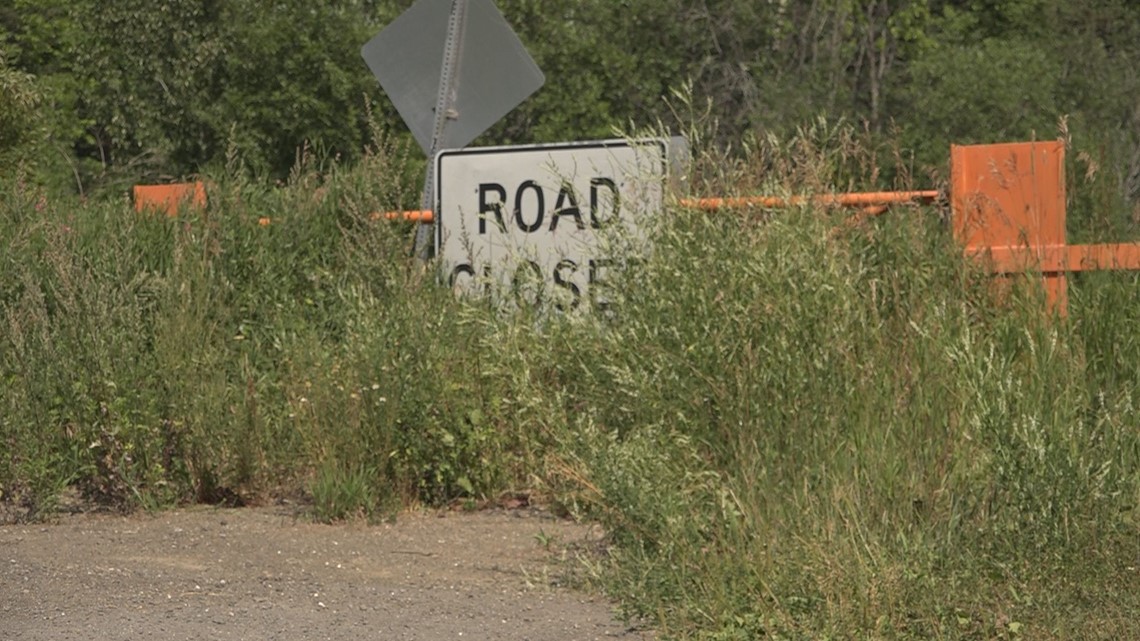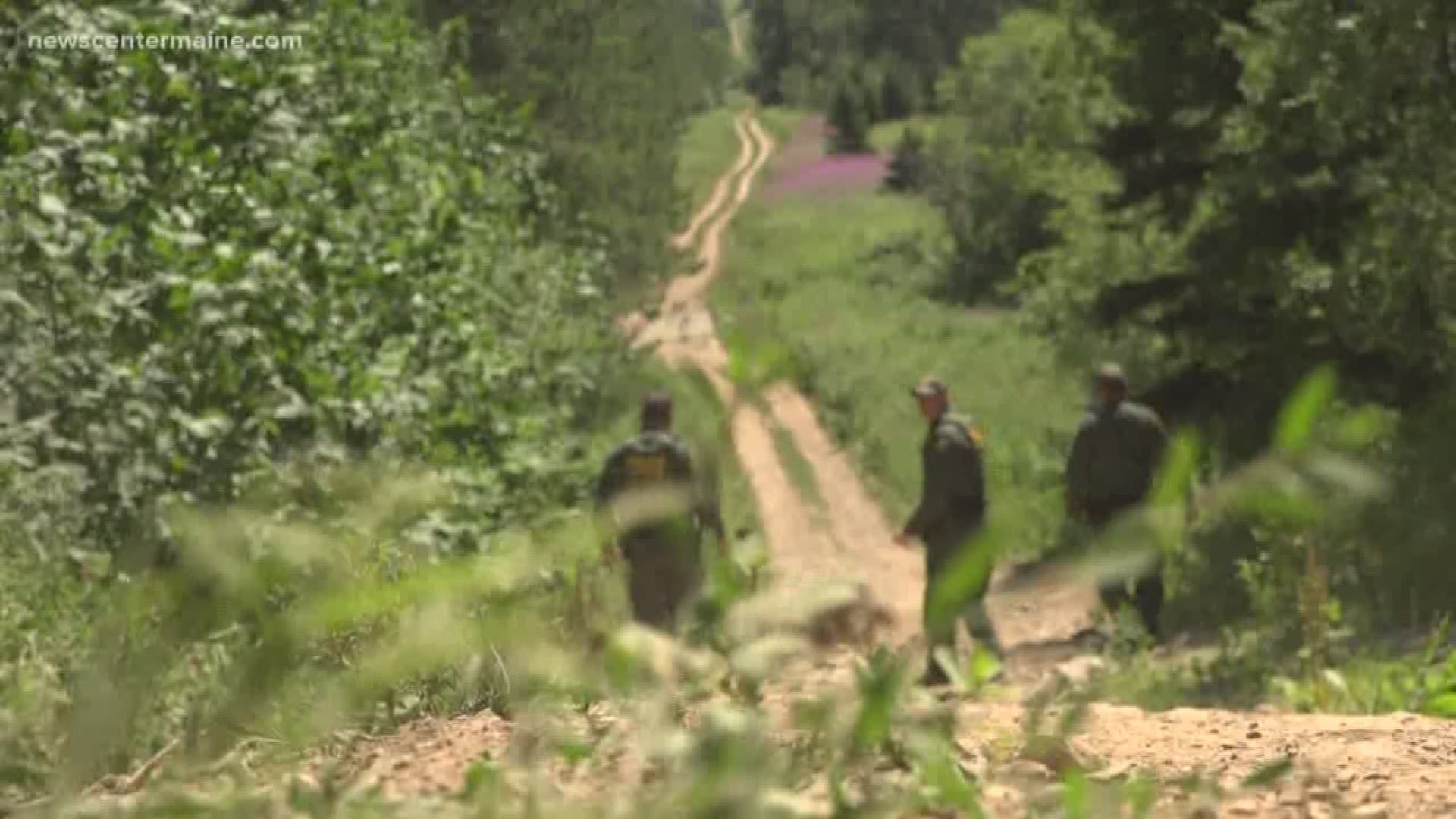MARS HILL, Maine — Customs and Border Protection border patrol agents stationed in Houlton typically work alone in elements that are very remote.
Outside of the checkpoint on the international boundary between the United States and Canada, there's no wall.
A "road closed" sign attached to a gate behind some overgrown vegetation is the closest thing to a visible barrier between the two countries.


"Here it's very different than where we worked, or where I've worked, on the southern border," said Border Patrol Agent George Ferland, a 22-year veteran of the department. "The amount of manpower, infrastructure, and technology that we have here on the northern border differs from the southwest border."
Ferland and the other agents stationed at sector Houlton go out on patrol multiple times a day, looking for footprints, vegetation that has been trampled down, twigs broken off of trees, and any "sign" leading in a direction away from the border.
"From the disturbances, we can tell if people or animals passed through," said Ferland. "We're looking for 'sign,' is what we call it, and that's any type of disturbance to the natural area to determine whether or not there's been a crossing, like someone has illegally entered the United States with contraband or as an illegal immigrant."
These are the types of patrols that lead to the border patrol catching illegal crossers, such as the eight Mexican nationals caught in Mars Hill just last month, seven of whom had just crossed the border.
"You never know who's crossing, what kind of contraband they may be bringing into the United States or what kind of activities they intend to do once they enter," added Ferland.
The agents rely heavily on the residents living by the border and partner agencies in law enforcement and non-law enforcement to help them catch criminals.
"We're out here as much and as often as possible [but] we can't be everywhere at once and the more people we have as force multipliers to help us do our job is only a benefit," said Ferland. "Let us know when things don't seem right in [your] area, especially when it's close to the border."

